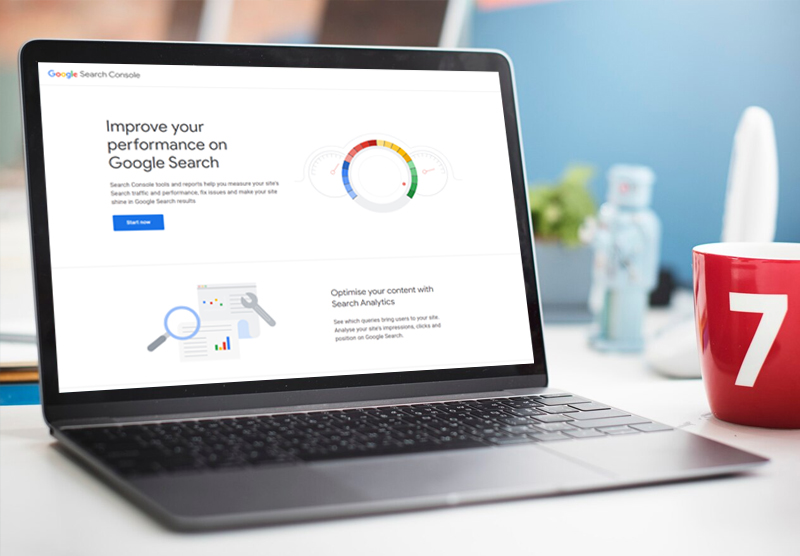SEO Tips and Tricks: Ways to Boost Your Site’s Ranking on Search Engines
In today’s increasingly competitive digital world, Search Engine Optimization (SEO) is indispensable for a successful online presence.
According to Sharad Agarwal, CEO of Cyber Gear, “A well-planned SEO strategy helps potential customers find your brand more easily on search engines, increases organic traffic, and enhances site visibility. Here are essential tips and tricks to strengthen your SEO strategy.”
Conduct Keyword Research
Keyword research is the foundation of SEO. Keywords help potential customers find you on search engines. When conducting keyword research:
Consider Long-Tail Keywords. These keywords cater to more specific search queries, directly targeting your audience.
Understand User Intent. Ensure that your keywords match the intent of users. For example, a search for “best SEO tools” indicates a preference for review or list-style content.
Use tools like Google Keyword Planner or Ahrefs, SEMrush to discover effective keywords.
Create SEO-Friendly Content
Content is king, and quality content always ranks well. However, there are certain tips to keep in mind when creating content:
Titles and Meta Descriptions: Use keywords in title tags to grab users’ attention and make it easier for search engines to understand your content.
Optimize Images: Images make your content more appealing. Add keywords to image alt tags to improve visibility in search results.
Update Content Regularly: Updating old content with new information signals search engines that your site is current.
Internal Links: Adding internal links that direct users to other pages increases time spent on your site and strengthens your site’s structure.
Don’t Overlook On-Page SEO
On-Page SEO deals with page content and HTML elements directly:
URL Structure: Short and descriptive URLs make it easier for users to understand the content. For instance, “www.site.com/blog/seo-tips” is considered SEO-friendly.
Header Tags and Subheadings: Dividing content into H1, H2, and H3 headings improves user experience and sends clear signals to search engines.
Meta Descriptions: Craft unique meta descriptions with keywords to increase click-through rates.
Optimize Your Site’s Speed
A fast-loading site enhances user experience and directly impacts your search engine ranking. To improve your site speed:
Optimize Images: Reducing image sizes increases page speed. Use WebP format or compression tools for faster load times.
Caching helps returning users load your site faster.
Content Delivery Network (CDN) ensures that your content is loaded from the geographically closest servers, ideal for international sites.
Prioritize Mobile-Friendly Design
With the increase in searches from mobile devices, mobile-friendly designs are crucial. Google prioritizes mobile-friendly sites, so testing and optimizing your site’s mobile compatibility is essential. Use Google’s Mobile-Friendly Test tool to evaluate your mobile performance and offer a user-friendly mobile experience.
Backlinks signal the credibility of your site to search engines. To acquire quality backlinks:
Produce Natural, Quality Content: Good content encourages other sites to link to you.
Guest Blogging: Write articles on other blogs to build backlinks.
Competitor Analysis: Examine your competitors’ backlink strategies to build connections that fit your niche. Tools like Ahrefs and SEMrush allow you to analyze competitors.
Pay Attention to Technical SEO
Technical SEO ensures that search engines can crawl and index your website. Key aspects of technical SEO include:
XML Sitemap: Submit your site map to Google Search Console to help search engines easily crawl your site.
Robots.txt File: This file tells search engines which pages to crawl or ignore.
SSL Certificate: Secure sites are prioritized by Google. Use the HTTPS protocol to enhance your site’s security.
Fix 404 Pages: Broken links harm user experience. Regularly check for 404 pages and redirect users to relevant pages.
Use Local SEO to Reach Your Target Audience
Local SEO strategies provide significant advantages for local businesses. For Local SEO:
Create a Google My Business account and add your business information to appear in local searches.
Reviews and Ratings: Customer reviews increase your business’s credibility and give you an edge in local rankings.
Local Keywords: Use local keywords that appeal to your target audience to stand out in search results.
Conduct Regular SEO Audits
SEO is an ever-evolving field, and regular audits are necessary to maintain success. SEO audits help measure your site’s performance and identify areas for improvement:
Track organic traffic, click-through rates, and ranking using tools like Google Search Console and Google Analytics.
Use SEO analysis tools like Ahrefs and SEMrush to thoroughly examine on-page and off-page SEO factors.
Regularly check mobile performance and speed.
Keep Up with SEO Trends
The SEO landscape is constantly changing. Innovations like artificial intelligence, voice search, and visual search are reshaping the SEO world. Notable trends for 2024 include:
AI-Based SEO: AI helps understand users’ search queries more effectively. Use AI-powered analysis tools to enhance your SEO strategies.
Voice Search Optimization: With the rise in voice searches, using natural, conversational keywords becomes essential.
Optimizing Video Content for SEO: Video content is gaining popularity. Boost your video SEO by adding keywords to YouTube videos.
SEO is the cornerstone of a successful digital marketing strategy. These SEO tips and tricks can guide you in elevating your site’s ranking on search engines. From keyword research to technical SEO, mobile compatibility, and local SEO strategies, applying these tips can help you achieve long-term SEO success. Remember, SEO is a constantly changing field, so staying updated and following new trends is crucial.



